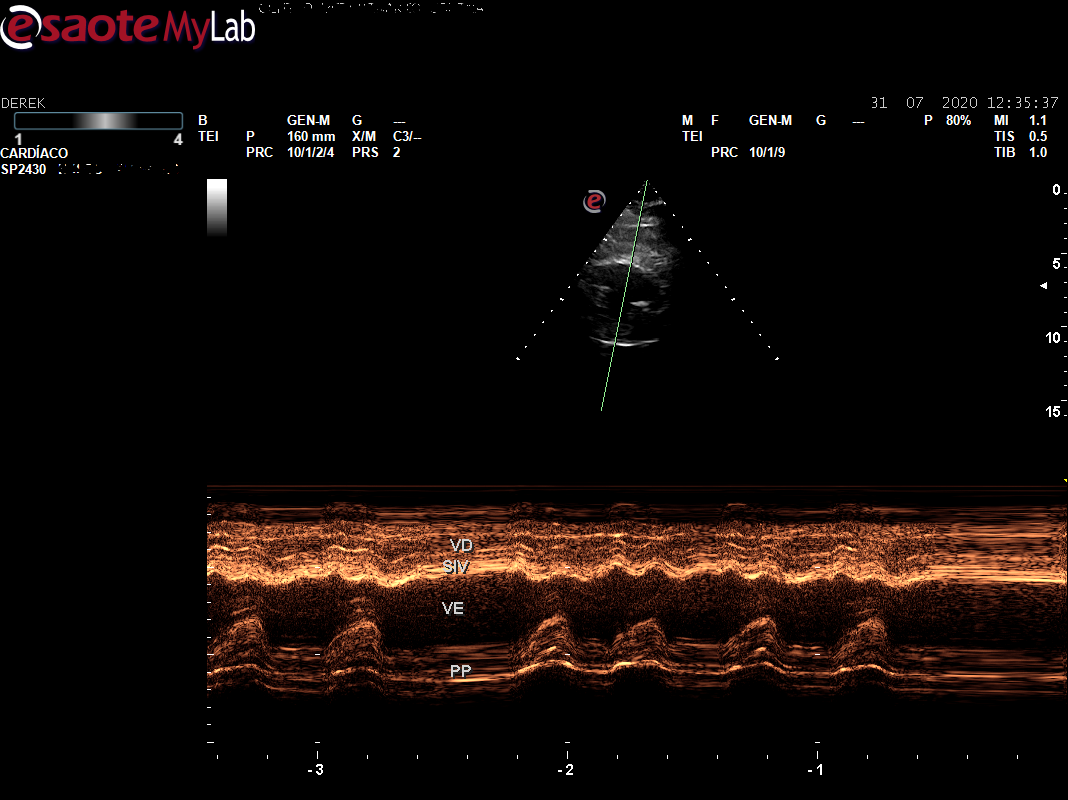Digoxin for atrial fibrillation: good, but not too good: a case report
DOI:
https://doi.org/10.21708/avb.2022.16.3.10837Abstract
Digoxin is a cardiotonic glycoside that is traditionally used for the treatment of heart failure and atrial fibrillation in humans and animals. However, the use of digoxin is still a challenge in clinical practice due to its narrow therapeutic range and its potential interaction with several drugs, which could facilitate the development of toxicity. A 12-year-old Labrador retriever was referred with a clinical diagnosis of heart failure and atrial fibrillation, anorexia, vomiting, and diarrhea. He had been medicated with digoxin, furosemide, lisinopril, and amiodarone. The patient also showed clinical signs of hip osteoarthritis and received firocoxib for four days. He additionally received drugs for gastrointeritis. The electrocardiogram demonstrated atrial fibrillation and signs of digitalis toxicity. Laboratory examination showed a high concentration of plasma digoxin, and 5 days after withdrawal of the drugs, the symptoms disappeared, as did the digitalis effects seen in the previous electrocardiogram.
Downloads

Downloads
Pubblicato
Fascicolo
Sezione
Licenza
Copyright (c) 2022 Acta Veterinaria Brasilica

TQuesto lavoro è fornito con la licenza Creative Commons Attribuzione 4.0 Internazionale.
Autores que publicam na Acta Veterinaria Brasilica concordam com os seguintes termos: a) Autores mantém os direitos autorais e concedem à revista o direito de primeira publicação, com o trabalho simultaneamente licenciado sob a Licença Creative Commons Attribution que permite o compartilhamento do trabalho com reconhecimento da autoria e publicação inicial nesta revista. b) Autores têm autorização para assumir contratos adicionais separadamente, para distribuição não-exclusiva da versão do trabalho publicada nesta revista (ex.: publicar em repositório institucional ou como capítulo de livro), com reconhecimento de autoria e publicação inicial nesta revista. c) Autores têm permissão e são estimulados a publicar e distribuir seu trabalho online (ex.: em repositórios institucionais ou na sua página pessoal) a qualquer ponto antes ou durante o processo editorial, já que isso pode gerar alterações produtivas, bem como aumentar o impacto e a citação do trabalho publicado (Veja O Efeito do Acesso Livre).


 Esta obra está licenciada com uma Licença
Esta obra está licenciada com uma Licença 